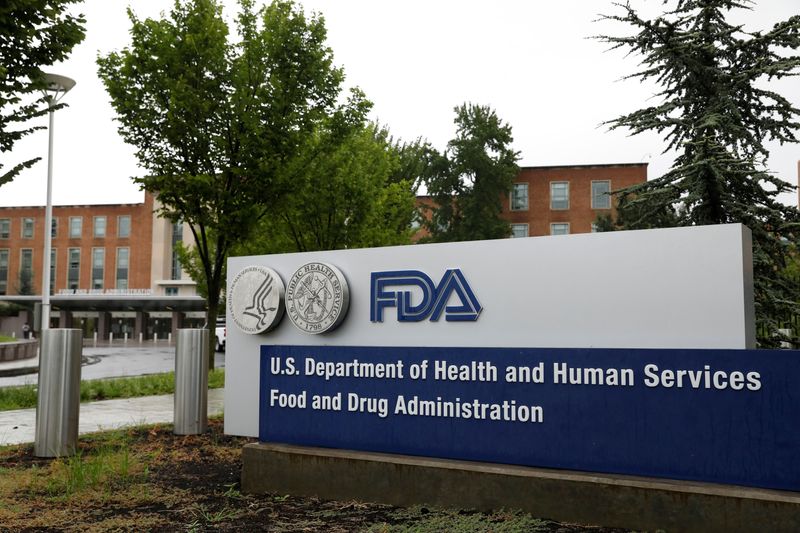By Leroy Leo and Sriparna Roy
(Reuters) -A panel of advisers to the U.S. Food and Drug Administration, wary of the safety of Intercept Pharmaceuticals' oral drug for a type of fatty liver disease, recommended on Friday holding off on an accelerated approval of the medicine.
The panel of outside experts voted 15-to-1 against the approval for obeticholic acid (OCA) based on surrogate biomarker data suggesting it was likely to benefit patients with NASH (non-alcoholic steatohepatitis) and fibrosis, or scarring, of the liver.
The panel by a wide 12-to-2 margin voted that the benefits of Intercept's drug did not outweigh the risks in NASH patients with fibrosis based on current data. Two members abstained.
Responding to the FDA decision Intercept CEO Jerry Durso said in a statement, "We are disappointed in the outcome of today’s meeting."
"We continue to disagree with the FDA on certain characterizations of OCA's efficacy and safety in pre-cirrhotic fibrosis due to NASH and the role of non-invasive tests (NITs), as discussed in today's meeting," the statement added.
NASH is a huge unmet need with no approved drugs after numerous clinical failures by several drugmakers. The progressive fatty liver disease affects about 5% of adults in the U.S., according to the American Liver Foundation.
"If you're talking about millions of people with NASH who could go on this drug, 1-in-1000 could get severe DILI (drug‐induced liver injury), you're talking about a new epidemic of liver disease as an adverse effect of a drug," said panel member James Floyd, an associate professor at University of Washington.
The condition is the fastest-growing cause of liver transplants in developed countries, with obesity and diabetes increasing the risk of NASH.
Intercept was previously turned down by the FDA in 2020, with the agency determining that the drug's predicted effectiveness failed to outweigh potential risks.
The drugmaker resubmitted its application last year, with additional analysis on its effectiveness and safety, but the FDA still appeared unconvinced.
"The FDA initially concluded that the OCA was associated with an unfavorable benefit/risk profile, and in the resubmission our assessment of efficacy has remained unchanged," Ruby Mehta, FDA's medical team leader for liver diseases, said during Friday's meeting.
The FDA usually follows the recommendations of its advisory panels but is not obligated to do so. It has been concerned about the drug's safety due to a signal of an increased risk of diabetes and liver injury, among other adverse effects.
A decision from FDA is expected by June 22, but accelerated approval is highly unlikely after Friday's vote.
Patients enrolled in the ongoing trial will continue to be evaluated for clinical benefit, which could be the basis for a potential future traditional approval, the agency told the panel.
"We wonder if the company will take a hard look at the significant cash needed to get to outcomes data 2 years away, which ultimately may not work - and then faces too much competition," said Jefferies analyst Michael Yee.
Other drugmakers such as Novo Nordisk (NYSE:NVO), Madrigal Pharmaceuticals (NASDAQ:MDGL) and Akero Therapeutics (NASDAQ:AKRO) are among those developing treatments for the disease.
"The FDA wants to see a large, strong safety database and adverse events will be closely examined," Yee said.
In 2016, OCA was approved under the brand name Ocaliva for treatment of a chronic liver disease called primary biliary cholangitis, but the FDA restricted its use in 2021 in patients with advanced cirrhosis of the liver because of the potential for serious harm.
The total patient population eligible for OCA, if approved, would be between 6 million and 8 million in the U.S. alone, according to the FDA.
